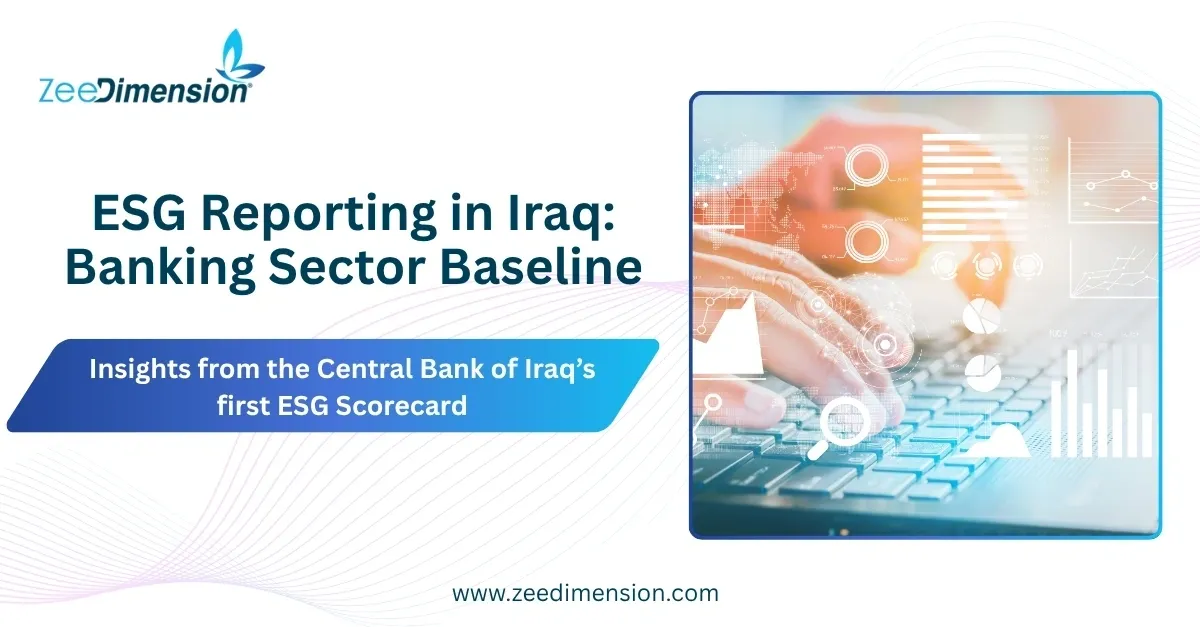
ESG Reporting in Iraq: Banking Sector Baseline
Insights from the Central Bank of Iraq’s First ESG Scorecard
Iraq’s banking sector is entering a new phase of transparency and accountability. In 2018, the Central Bank of Iraq (CBI) introduced binding ESG codes for banks, and by 2022 it launched the country’s first ESG Scorecard assessing 62 banks. This marks the first central bank-led ESG evaluation in the MENA region’s banking industry.
The Shift Begins
The ESG Scorecard represents a formal move towards integrating sustainability and governance principles into banking operations. It sets a national benchmark for measuring performance and guiding reforms.
What the Scorecard Measures
The evaluation covers six core areas: governance, board structure, control environment, transparency, ESG integration, and stakeholder engagement.
The Numbers at a Glance
The median ESG score was 56%, with top performers reaching 78% and the lowest scoring 31%. Ten banks, all private and listed, scored above 70% while 27 banks scored 50% or less, most of them state-owned.
Strengths and Gaps
Most banks have governance frameworks in place and some integrate ESG into lending, but challenges remain. Board diversity is low, climate risk considerations are minimal, and disclosure practices are still weak.
Why ESG Matters
Top-performing banks not only lead in sustainability practices but also show stronger profitability, with an average return on assets of 1.2% compared to 0.47% for low performers.
Roadmap for Progress
To close the gap, the CBI recommends clear ESG action plans, improved disclosure, integration of ESG into risk frameworks, and greater diversity in governance.
The Outlook
Iraq’s first ESG Scorecard is only the beginning. With structured reforms, its banking sector can align with global sustainability standards, attract investors, and contribute to long-term economic growth.







